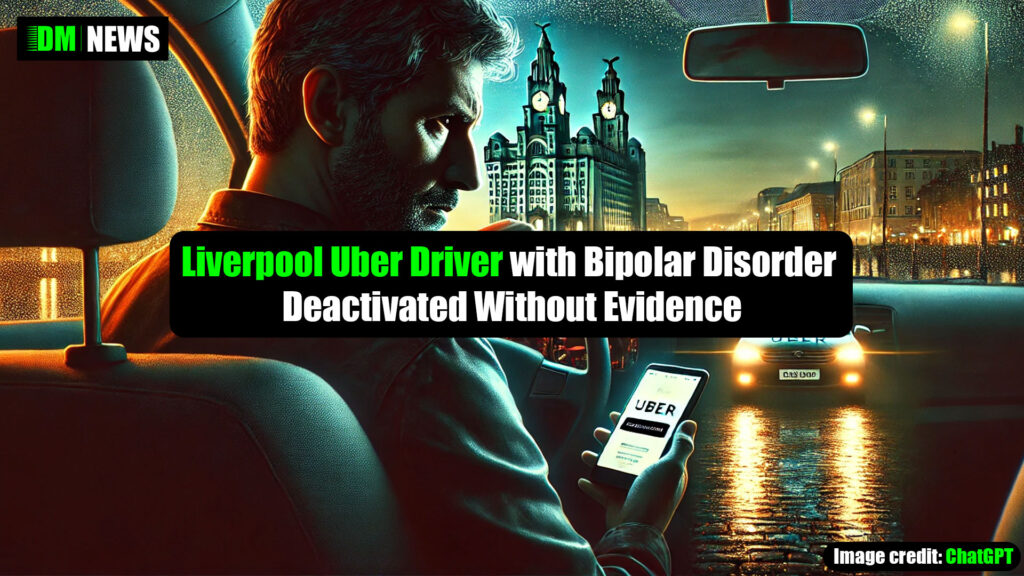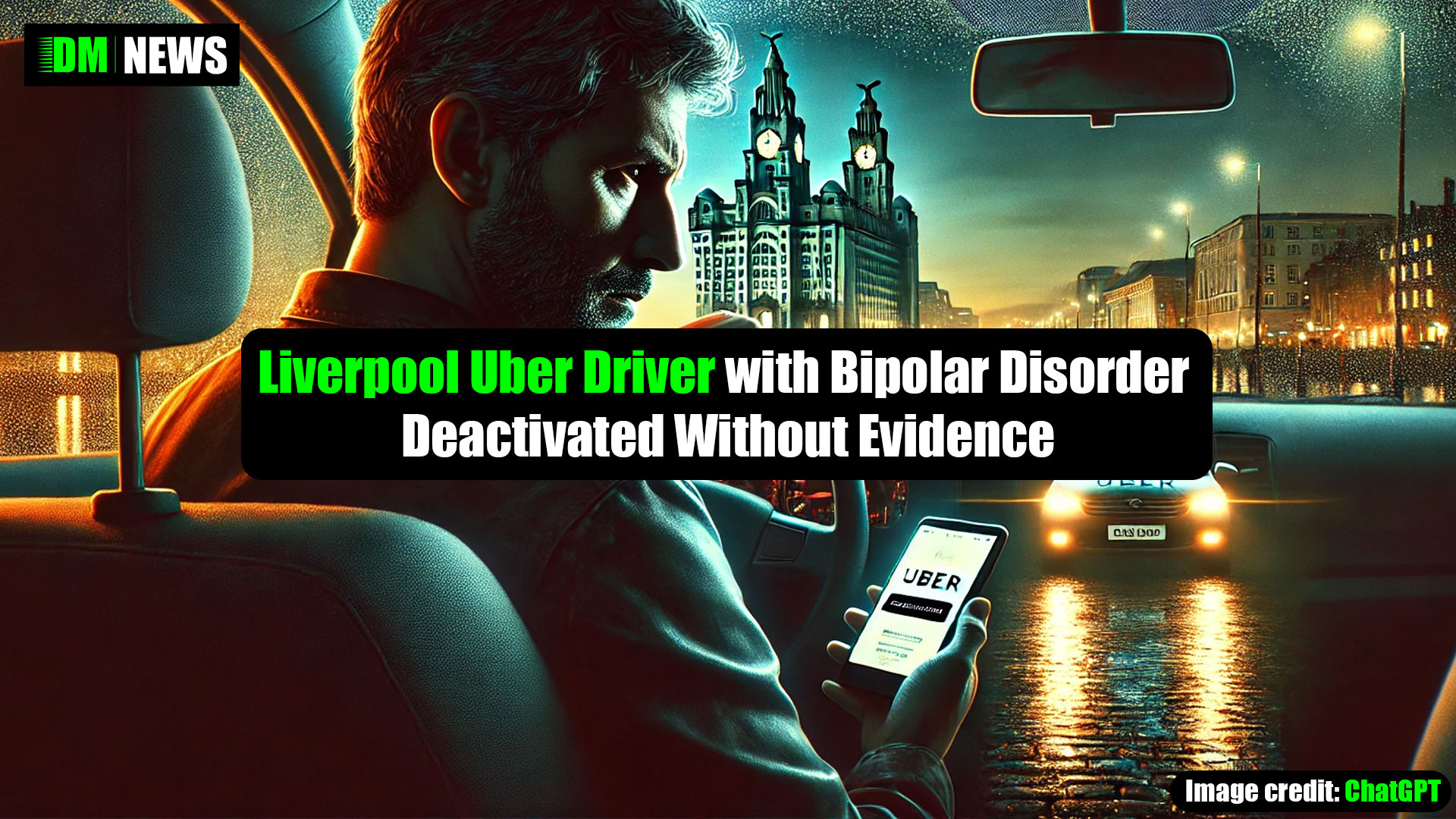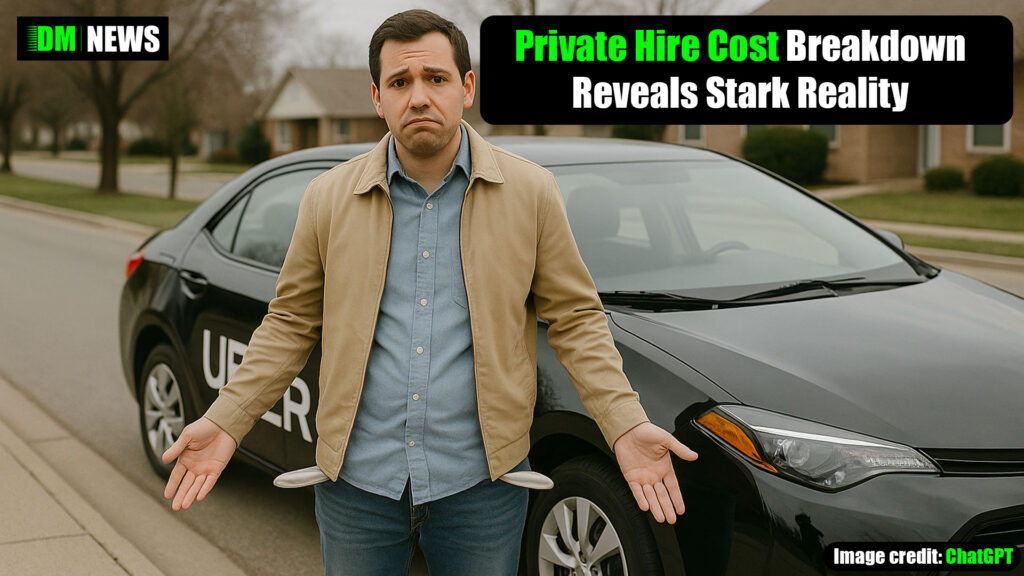A Liverpool-based Uber driver, who has been diagnosed with bipolar disorder, has been deactivated from the ride-hailing platform following passenger complaints – despite a lack of concrete evidence. The driver, who wishes to remain anonymous, reached out to DM News to highlight what he describes as unfair treatment by the company.

Over the past year, three separate passengers have reported concerns to Uber, alleging that the driver was under the influence while working. However, after the first complaint, the driver contacted Uber to clarify his medical condition. He explained that his bipolar disorder can sometimes lead to fluctuating moods, fast speech, and occasional mumbling or talking to himself – symptoms that could be misinterpreted by passengers.
Despite being fully legally approved to drive by the Driver and Vehicle Licensing Agency (DVLA), Uber has permanently deactivated his account after the third complaint. The driver claims Uber took this action without requesting any drug or alcohol tests to substantiate the allegations.
“I’ve never driven under the influence. My medical condition means I can be quite energetic and talk fast at times, but that doesn’t mean I’m unsafe,” the driver told DM News. “I passed all DVLA checks and was honest with Uber about my diagnosis, yet they’ve deactivated me without any real evidence.”
Uber has a policy of suspending or permanently removing drivers who receive multiple complaints of intoxicated driving, as part of its commitment to passenger safety. However, critics argue that deactivating drivers based purely on unverified complaints—without any form of testing or due process—raises concerns about fairness and discrimination against those with medical conditions.
Mental health advocates have also weighed in, urging ride-hailing companies like Uber to improve their approach to supporting drivers with diagnosed conditions. “Bipolar disorder doesn’t automatically make someone unfit to drive,” said a spokesperson from a UK mental health charity. “Decisions that impact a person’s livelihood should be based on facts, not assumptions.”
The driver has appealed Uber’s decision but has not yet received a response. He hopes his case will raise awareness about the challenges faced by drivers with mental health conditions and encourage Uber to reconsider its policies on handling such complaints.




